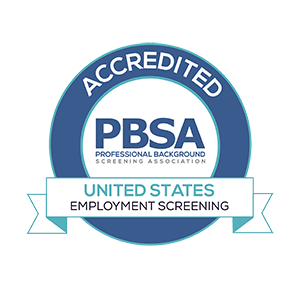When the EEOC this spring updated its guidance on the use of criminal records in the hiring process, it attracted much attention and created a new set of issues for those involved.
The new guidelines add specifics to existing policies that prohibit denying employment simply because an applicant has a criminal record. The new guidance requires that on discovery of such a record in an applicant’s history, the hiring agency go deeper into the subject with an individualized assessment.
In other words, if an applicant has a conviction, the employer must examine it in such a way as to give the applicant fair consideration. The new EEOC policy raised a number of questions for employers who routinely used background checks in the hiring process.
There are technical and legal issues involved here, but one way to approach the new EEOC guidance is to apply a bit of common sense.
A good start would be devising a company policy for individualized assessment and make sure that all your hiring managers are trained in applying that policy.
The policy should cover your company standards for how criminal convictions are used to in assessing a candidate’s suitability for specific jobs and for evaluating information obtained in criminal background checks as it applies to a specific job.
Some questions to consider as you develop the policy are:
- What was the nature of the offense and how would that affect a candidate’s suitability for a specific job?
- When did the offense occur?
- What was the outcome of the criminal proceedings?
- What rehabilitation efforts were made? Did the applicant successfully comply? Has the applicant undertaken other steps (education, training, etc.) to improve themselves?
- Has the person performed similar tasks to what they would do for you since the incident?
- What do more recent employment records and character references reveal?
- What offenses would automatically disqualify any candidate from a specific job?
There are certainly many legal cases that will arise from this new guidance from the EEOC and clarifications and interpretations will continue to emerge over time. Establishing a constructive policy addressing some of the key points above will help you now and as you move forward.
The new guidance should not deter hiring managers from conducting background checks, but it should encourage more detailed and specific analysis of any otherwise qualified candidate.
That may require some additional work, but in the long run it could even benefit employers who find quality workers who have overcome their past mistakes.
If have more questions about how the new EEOC policy affects your process, or need help devising a company policy, contact us.


Leave a Reply
Want to join the discussion?Feel free to contribute!